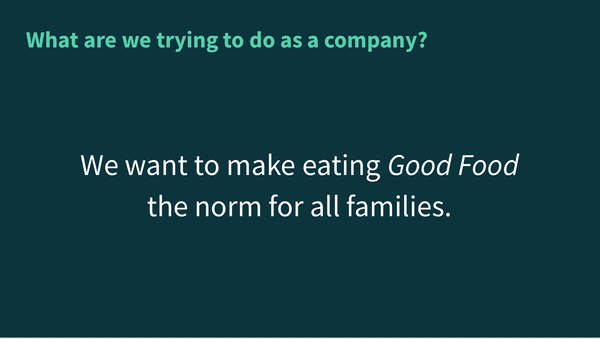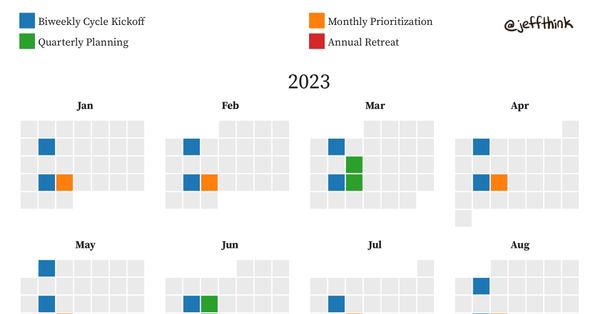A careful observer of an organizational ecosystem can spot the product manager scurrying between meeting rooms, or ducking in and out of zoom calls. The creature appears unsure of the origin of its "Collect Underpants" imperative, but years of evolution has instilled an innate drive to sniff out "Profit" amidst its surroundings.

Putting aside the South Park meme and gnome metaphor, the reality is that product managers spend an inordinate amount of time exploring the ❓ as they try to convert a strategy — often handed down from on high — into company profits (and ideally, customer value).
This quest for ❓ can feel both stupefyingly simple, and maddeningly complex — not unlike the human beings that product managers spend much of their time cajoling. And because of its slippery nature, the best product managers I know are effective thanks to an indomitable mindset oriented around exploration, rather than any magical combination of skills you might find in a Product Manager job description.
That is why I center my product management coaching around a pithy slogan:
Think like a storyteller.
Act like a scientist.
Storytellers go spelunking in the caverns of the human spirit — what are my characters' motivations, how do I realistically describe their lives and relationships, and how can I weave together a story that touches on all the important details while maintaining a coherent and inspirational narrative.
Scientists are also searchers, but codified by the scientific process — what am I intuiting about some unknown, what is a clear hypothesis I can state that captures that intuition, how can I design an experiment to test that hypothesis, and how to understand and iterate on the results of that experiment.
How are these two mindsets relevant to a career in product management?
"To create great work, here's how you must spend your time: 1% Inspiration, 9% Perspiration, 90% Justification." – George Lois
Human beings love stories — whether in a dazzling movie, a galette of gossip, or an intensity-laden boardroom. And oftentimes, the more on the line — money, time, reputation — the more convincing a story needs to be to win folks over. Since a product manager's charge within an organization is to facilitate decision-making for solving the ❓, the most effective PMs know how to craft stories that are compelling, cohesive, and well-supported by evidence.
To see how this maps into the workplace, consider this MFE framework:

- M: What are the motivations and "stories they are telling themselves" of those around you — the customers, CEO, investors, teams you work with, and even yourself?
- F: How can I frame (and continually reframe) the overarching story of what we're working on— how does the company vision map down to the current priorities, how is it solving customer problems, and how do the competing stakeholder needs and wants weave together?
- E: What evidence do we have to support that story — how can we systematically determine what we don't know, create hypotheses to test assumptions, and effectively run experiments in order to garner insights from the resulting data?
Centering your product management work around a mindset and a process keeps the important questions at the forefront and protects you from getting lost in the dizzying number of tactical skills a PM should be developing over time — customer research, prioritization, analytics, etc. Shreyas Doshi, one of my favorite twitter follows, put together this fantastic skills map that is based in a similar holistic approach:

Just as we need storytellers and scientists to help us make sense of our world — the many unknowns, conflicting narratives, and gradients of grey — we need product managers to do the same in our organizational settings. And just as the diversity of lived experiences and perspectives within the arts & science communities is critical to the success of our collective exploration, as it should be in product management as well.
I encourage you to take advantage of the fact that success in this field is grounded in a mindset (and perseverance) rather than a specific set of skills, and to seriously consider a career in product management!
Interested in hearing more?
- I teach product management using this methodology to early career folks at Alpha Fellowship.
- I elaborate on this mindset as part of a recent info-session for Alpha Fellowship, where I walk through a case study about a meal planning feature at Relay Foods - check out the video and/or slides.
- I consult with organizations on these topics with a hands-on coaching mentality. Reach out if you're interested.
- Consider joining our free newsletter and/or sharing your thoughts in your communication channel of choice.


